For the past 20 years, on a leafy street in Washington D.C., an Iranian man from Isfahan has been quietly selling homemade ice cream to America's most powerful politicians. His shop, situated next to “Embassy Row” and just a half block away from the residence of Vice President Joseph Biden, has gained a cult status among both Washington politicos and the local community, and the owner, Max (Mahmoud) Keshani is a beloved fixture of the neighborhood.
Photos of American officials from James Baker to Al Gore eating Max's ice cream adorn the shop's walls, and an aide of Joe Biden, who Max considers a dear friend, confides that Biden does a “Max impression” in his office, imitating the exuberant gestures and warmth that have so endeared Max to the area, and his influential customers, since he opened up shop. Over the years, in the aftermath of the Iran-Iraq War, and into the years of nuclear stand-off, Max has remained a friendly Iranian face that American vice presidents, secretaries of state and their families, have seen regularly, and he has sought to project the hospitable, caring side of his culture through these minute interactions, a sort of 'ice cream diplomacy' of his own making.
After over two decades in business, “Max’s Best Ice Cream” will be shutting its doors officially this November (a group of fifth graders recently protested the decision in front of Max’s shop). IranWire caught up with Max to document the extraordinary tale of his journey to America from Iran and his early experiences in the United States.
Your journey to the United States and success here fits the ideals of the American dream. Can you describe your early life and your family back in Iran?
I was born in Isfahan in 1945, and my parents were born there as well. My father was a construction worker and my mother was a housewife. I am a pure Isfahani. I had five brothers and one sister growing up, two of them have since passed. Out of all of them I am the only one who finished his education and received a diploma. I played a lot of soccer as a child. On the way home from school we would roll up some old socks tight around some string and that would be our soccer ball. We only had one pair shoes to play soccer in and those were our shoes for the year which we would always get on Nowrooz (Persian New Year).
Did you like ice cream as a child?
Yes! Absolutely I did, but to be honest we couldn't afford ice cream as a family.
When did you come to the United States?
I came in 1971. There were a lot of obstacles along the way for me to come to the United States. It was the time of the Shah so before I could come I had to do my military service.
Where did you do your military service?
In those days if you weren’t drafted into the armed forces you would be drafted into Sepah danesh (Teaching Forces) where you would go to the villages and small towns and educate the kids and youngsters, or Sepah tarvij va abadani (Advancement and Development Force) where you worked in agriculture. For whatever reason, maybe it was my good grades or maybe was because I was a good soccer player, I was stationed in Isfahan to teach and develop agriculture during my military service.
It seems soccer was an important aspect of your life growing up. Did you play for a soccer club?
Yes I did. Back then they called the team “Taj” but now after the revolution the team is called “Esteghlal.” In high school I was always the captain of the soccer team and we were always first place. I also played for five years with the Iran national high school team, it was called "qahrahman keshvar" (champions of the country). In those days there were only a few provinces and I would tour the country with my high school team and compete against other high school teams and that was called “mosabeghat amoozeshgha” (competition of high schools).
I suppose there is no point in asking you if you are “Red” (Persepolis FC) or “Blue” (Esteghlal FC)? So essentially before you came to the United States you were a professional soccer player?
I will always be blue! Team Esteghlal I am still friends with some of those guys from “Taj” who are affiliated with Esteghlal now. “Shaheen” was the name of the current Persepolis team before the revolution. Yes I suppose you could say I was a professional player, that but in those days they we didn't get paid. We played for the love of the game.
Can you describe your transition to the United States and how you were able to settle in during those early years?
I first ended up in Tennessee and played soccer for a very small college. One day my friend saw me playing soccer and he told me that I had “too much talent to be at the school,” and that I should apply to transfer to another school. My English wasn't very good those days and I actually had to look up the word “talent” in a dictionary later that day because I did not know what it meant. Later on that year the same friend took me to his home in upstate New York for Thanksgiving in 1972 and it was there that we visited Mooresville College. It was a junior college school but their soccer team the second in the nation.
While visiting Mooresville we decided to play some soccer on campus with the school’s soccer team and when the coach saw me for the first time he immediately said that kid is going to play for us next year. The coach accepted me with full scholarship, room and board and everything, and I finished my two years of college there. I had many scholarship offers from four-year universities to play soccer but I chose American University in Washington DC. I played soccer at American and graduated in 1976. I wasn’t one of those Iranians who studied in the States on an [Iranian] government scholarship, my parents were very poor and I had no economic support from them. Soccer essentially paid for my education.
So you spent most of the early 1970s in Tennessee and upstate New York, did people ask you where you're from and if you're Iranian?
In those days Iran wasn't a very well-known country. It was eight or nine years before revolution. The majority of the time I was on a college campus and I was dealing with mostly young college-aged kids. If people did ask me where I was from I would tell them “Iran” and some common responses or questions would be: “Where is Iran? Is it part of South Africa? Are you Arab? Do people in Iran have electricity? Do they have a televisions? Do people ride camels there?” By late 70s and early 80s Iran was a major factor and everyone knew about it.
Did you experience any prejudice or discrimination during the Iranian hostage crisis while you were living in the US?
Yeah of course, but there were American hostages in Iran so the animosity was natural. Lots of Iranians were hurt, some killed, some deported. As for my personal experience, I did not have much experience with this. Maybe it was because people thought I looked Greek, or Italian. But I do remember one specific experience. During the hostage crisis I had a job selling life insurance in Fredrick, Maryland. After finishing a deal at the home of one of my customers, the final step was to get a reference from someone that knew my customer. So I went to the next door to their neighbor’s house and knocked on the door. A man answered the door and pointed a shotgun in my face and said, “Get the hell outta here and go back to your country.” After that day I quit selling insurance.
Can you describe how you met your wife?
In 1981 I was fortunate to find a very nice decent lady. Her name was Marsha Ann. We got married in 1983. We had our first baby in 1985 and we named her Neda. My daughter Neda was a fantastic soccer player growing up and got athletic scholarships like me. My wife visited Iran several times and absolutely loved it. She loved it so much that she wanted to be buried there.
Max becomes heavy hearted when discussing his late wife. She passed away two years ago on June 25th, 2011 after battling cancer. After Martha’s passing, Max had trouble coping with the loss of his wife and during that period students from American University volunteered and kept the shop open which allowed Max and his family mourn privately without the stress of the family business.
After she died, my daughter Neda wanted her buried here in the US so that she wouldn’t have to travel all the way to Iran to visit her grave. When Marsha would take trips to Iran she would take medicine with her so she could help the children and adults that were sick. That was her soghati (travel gifts), that’s the type of person she was. My family was lower middle class. She would always spoil them. She kept a book of what each family member wanted from the US. I still have the book.
How did you and your wife open up the shop?
At the time we were living in the area and we saw this store for rent. I’ve always loved ice cream but I never had the idea of opening up a shop. It was actually my wife who came up with the name “Max’s Best.” I didn't want to put my name on the store. I wanted to put Marsha's name. She explained to me that with my outgoing personality, people would always remember “Max's.” It was also Marsha’s idea to put up all the photos of children. She called it “Children Wall of Fame.” The next thing I knew all the politicians wanted to have their photos up on the wall with the kids! It’s amazing because I have adults come in and point to pictures of themselves on the wall when they were kids.
How did your being Iranian help your ice cream business?
As an Iranian, I wanted to showcase my culture’s hospitality and make it a part of this business. It wasn't about just selling people ice cream and having them leave. It was about engaging the kids as well as their parents with 100 percent kindness, and having a meaningful interaction with them. In Iran, you treat people like they are part of the village or neighborhood, like “khodehmooni” (one of us). Kindness and courtesy are part of Iranian culture. I also only use the best ingredients in my ice cream, just like Persian cuisine. Customers come back not only because the way I treat them, but also because they can taste the difference between my ice cream and something that was produced in a warehouse.
Have any of your customers acted negatively towards you when they find out you are Iranian?
I've been in the United States for so long that I've learned how to deal with stuff like that. My wife Marsha actually helped me with that by telling me never to get mad. Some people for instance never thought that an Iranian could make such tasty ice cream. I have to tell them that actually Iranians have the best ice cream! We have the famous Akbar Mashti and in Isfahan we have a lot of famous ice cream makers. Sometimes there are curious customers who will ask where I'm from but they have never any negative reaction towards me being Iranian.
Have you ever sold Iranian ice cream here at your store?
Yes I have, but in the location I am in there isn’t much of an Iranian clientele. The majority of customers are American so when I put faloodeh on my menu it didn't sell much because the younger kids didn't understand what it was or how to eat it. They would just look at it and ask their parents for something else. I have made faloodeh for private events for embassies and private Iranian parties. But in the store I make the best pistachio ice cream ever.
Some of your customers are the most powerful people in the United States, can you talk a little about that?
Government officials, staff members and family members from the past three presidential administrations have all eaten my ice cream. Laura Bush and her daughters, Hilary and Chelsea, and Michele Obama and her daughters. My shop is a mom and pop shop so they all feel comfortable here with their family. People from White House, Congress, very high level people all come here and mix with my ordinary customers. And they never act like they are better than anyone. They just come on with casual clothes, short-cut pants, t-shirts and sandals.
Look at their photos on the wall! [Max stands up and points to a number of photos of famous people among the sea of pictures on the wall. They include Joe Biden (Current US Vice President), Al Gore (former US Vice President), James Baker (Chief of Staff for Ronald Reagan and George H.W. Bush), Susan Rice (President Obama’s National Security Advisor and former US Ambassador to the UN), Janet Reno (Former US Attorney General), Janet Napolitano (Former US Secretary of Homeland Security), Bill Frist (Former Senator from Tennessee), Andre Agassi (legendary tennis player), Mark Brunell (former Washington Redskins quarterback), Martin Sheen (famous actor of the TV series The West Wing), Dan Rather (famous Journalist).] Even more people have come here. This is just who I have a picture of.
Former Vice President Dick Cheney lived just across the street where Joe Biden lives now. Did he ever come by?
He did not. I assume because he has a heart problem, ice cream probably isn’t good for him. But his wife and granddaughters did.
Out of all the government officials who have eaten ice cream here, who do you feel like you have the best relationship with?
Joe [Biden] and I are close. He is my dear friend. He always comes here, almost weekly with his family and dog. He even mentions my shop as his favorite spot in DC when he does interviews. He comes the most frequently so he is always so comfortable here. I’ve never called Joe “Vice President” or anything like that. He knows me as Max and I know him as Joe. Al [Gore] also came often with his family but for whatever reason was kind of tense. They live so close [Navel Observatory] that it’s easy for them to stop by with their families.
Can you share any funny or interesting stories about these prominent politicians?
One time when the Bush daughters were in here, they were in high school I believe. One of them grabbed a cookie from the counter and started to walk away because she thought it was free. I jokingly said to her, "that cookie is free if your dad (President George W. Bush) stops taxing me!" Another time someone on Joe Biden's staff once told me that the Joe was imitating me in his office all day. I like to move my hands when I'm serving ice cream and interact with people using body language. So the staffer told me he (Joe Biden) would imitate my hand gestures and when he greeted people who were visiting his office (When serving ice cream, Max likes to do a Fonzi-like finger point with his thumbs out which resembles a gun when he asks “who is next,” and he also claps his hands and uses other types of sudden movements and gestures while he is behind the counter).
If you had to start this journey all over, would you have opened up this ice cream shop again? Or would you have done something different?
If I could do it all again, I've always wanted to be a mayor. I have good public relations. I love working with people. I want to work for them and help them. If I saw someone who had a flat tire I would stop and change it myself for them. Unfortunately due to the Iranian Revolution, things didn't work out that way, but in my shop I'm still interacting with people constantly, and the over the past twenty years everyone now knows who I am in the area.
It seems like everybody in the neighborhood adores you and goes out of their way to say hello to you. Even though you never got the chance to be an official Mayor, do you consider yourself the unofficial Mayor of Glover Park?
Yes good point (laughingly)! Informally I think I could be. Everyone knows Max's. The people who are familiar with Max's will never let the world forget about this shop because they have always been treated well, with respect and trust, and in return they get the best I've cream they have ever had.
You unfortunately will be closing the doors to Max’s Best Ice Cream in the coming months. What do you want your legacy to be?
Trust, honesty, courtesy...
Max takes a long pause and stares out the windowpane watching the foot traffic pass in front of his shop on Wisconsin Ave. After collecting his thoughts he takes a deep breath, and clears his throat strained with emotion.
This is a very difficult question... I want people to say he was a hardworking, genuine, caring, decent man...an honest man...I wish these could be summed up into a combination of one word...I don't know.
Teary eyed and emotional, Max gets up from his seat and walks to the wall where numerous press clippings hang and points to his late wife Marsha.
She is the one...She was a good wife, and made me into a successful husband...This was all her, (Max opens his arms to signal the ice cream shop) she is part of my legacy. Without Marsha, there is no Max’s Best.























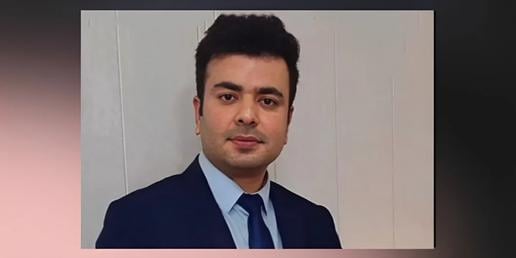

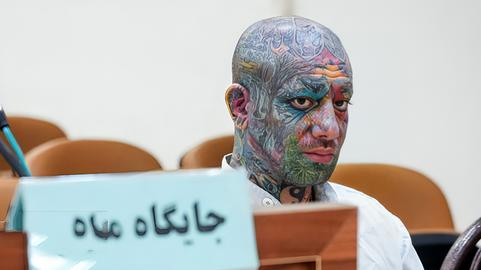






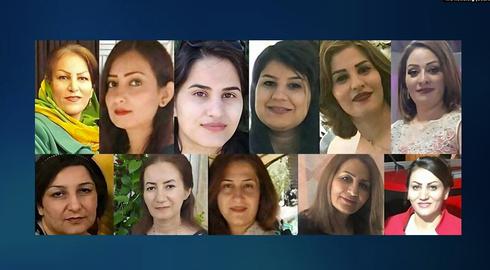
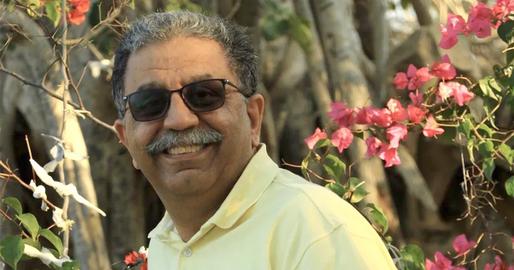



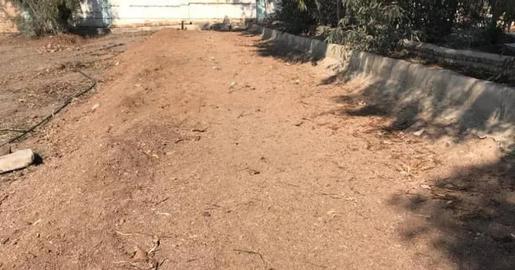
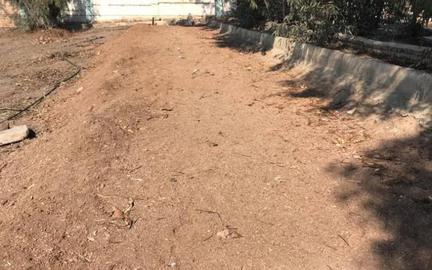


comments